Dashnor Kaloçi
The first part
Memorie.al publishes some archival documents issued by the Central State Archive in Tirana (fund of the former Central Committee of the ALP), which kept the “secret” logo and belong to 1973, where the two senior officials of the apparatus of The Central Committee for Foreign Relations, Agim Popa and Pirro Bita, through an information, instruct the head of the Albanian embassy in the capital Santiago of Chile in South America, regarding the work they should do, the relations with their foreign colleagues of the diplomatic corps accredited in Santiago, aid to Marxist-Leninist groups, etc., to the attitude they were to maintain towards the government of Salvador Allende…!
Chile in the early 1970s would be characterized by a profound political-economic and social instability caused by the extremely radical immediate reforms of the President, Salvador Allende and his government, towards the key sectors of this economy, the energy industry and that mining, exploited for years by American concessionaire firms. These leftist and hasty reforms would express dissatisfaction with the moderate part of the left-wing coalition, which would provoke a deep government crisis in the coming months. The deep division of Allende’s left-wing governing coalition would alarm the official Albanian foreign policy sector in the Central Committee of the ALP, to the extent that the head of that sector, Agim Popa, would be forced to give strong instructions. for an indifferent and not very cooperative attitude of the staff of the Albanian embassy with the forces of the ruling coalition and with the other Left Parties in the distant South American country.
And this, as official Tirana not only felt the indifference of the Chilean communists to develop a very friendly relationship with them, but would be fully “capable of predicting” the rapid destruction of the left-wing hybrid government of Salvador Allende. And indeed, the social left-wing experiment in Chile would end tragically on September 11, 1973, when the Chief of General Staff of the Chilean Army, General Augusto Ugarte Pinochet, along with the Infantry, Navy, Aviation forces, the police, and the DINA secret service (with the tacit support of the CIA and the Pentagon), would carry out a horrific coup, attacking the Presidential Palace, La Moneda. And as a result of these events, the only diplomatic missions of the communist states stationed in Santiago, such as the Soviet Union, Cuba, and Albania, would be evacuated immediately a few hours later. An attack in which President Allende himself would fight to the death with a gun in his hand. General Pinochet’s right-wing military junta would then run Chile with an iron fist for 17 years, until his departure in 1990.
Regarding the above, in this article for the first time we are publishing in full two secret reports of the Central Committee of the ALP, of March and July 1973. The first belongs to the head of the External Sector of the Central Committee of the ALP Pirro Bita, and talks about the political-economic and social situation in Chile in the ’70s and his relations with Albania, while the second compiled by his successor, head of the Foreign Sector at the Central Committee of the ALP, Agim Popa (otherwise known as the translator of the Albanian delegation led by Enver Hoxha at the Meeting of 81 Parties in Moscow), addressed to the Albanian Embassy in Santiago, Chile, and especially to the then newly sent ambassador to this country, Përparim Spahiut.
According to the document in question, in the second report addressed to our embassy in the capital of Chile, Santiago, Agim Popa, clearly explains all the protocol procedure that the embassy staff had to follow and also gives clear advice and instructions regarding the official position of communist Tirana’s foreign policy regarding ideological support for the left-wing ruling coalition in Chile, called the ‘People’s Unity’ led by President Salvador Allende. For more, we are familiar with the two documents in question, which Memorie.al. publishes them in full and without any changes.
Report of the Head of the Foreign Sector in the Central Committee, on the work at the Albanian Embassy in Santiago
Approve
- V. 1973
SOME PROBLEMS ABOUT OUR WORK IN CHILE AND LATIN AMERICA
The period so far is for us a necessary time to know the situation. This phase cannot be considered complete at all, because on the one hand the time for this is quite short and our experience insufficient, and on the other hand the necessary commitment of friends to find a home and deal mainly with technical problems, as well as the headline disease almost from the beginning have hindered, or made it impossible to achieve more results.
Recognition of the situation in Chile and Latin America (especially in some countries), as well as consideration of the possibilities to what extent and how Chile can be used as a fulcrum for our work (state and party), on this Continent, remains for a relatively long time the main problem of the embassy. However, some things that we have noticed so far that can and should be studied in more depth are: About our country’s relations with Chile. As it was predicted that before our embassy came to Santiago, these relations have no prospect of any major development. Geographical distance is not the main factor.
Much greater than this is the distance of roads, of politics, not only internal, but also external, that follow both our countries. The current government is led by communists and socialists. The other parties are only small political groups, but in most cases, both money factions. They have some contradictions with other Parties, but are in full harmony on fundamental ideological issues and on domestic and foreign policy. All the ruling parties have as their common line the “peaceful path of revolution”.
They try to justify this “theory” in all ways, it can be said that they are in competition with each other, to argue. And the main ones, according to them, are the high, ancient traditions of democratic and peaceful development of Chile, the need for “plurality” (existence of all political parties without exception) and the transition to socialism in terms of “plurality”, not only as a feature of Chile, but as a unique example, worthy of study and application in other countries in the conditions of our era, the rejection of every idea and every propaganda for the use of revolutionary violence: There is talk of Marxism by the socialists, but not of violence revolutionary (they do not talk about Leninism, or talk about it when they should mention it for feelings of other benefit).
President Allende says there is nothing more horrible than the use of force by anyone and in any case, there is nothing better than democracy for everyone and in every case. So, nothing new except the stale arguments of classical opportunism of modern revisionism. So, stale that even the Soviets are too reluctant to talk about socialism in Chile. The idea of a “peaceful path” of “peaceful transition to socialism” is so ingrained here that not only domestic political life, but also international life is viewed and propagated only through this prism. He finds great echo in every conversation about “peaceful solutions” that takes place in the world, whether for Vietnam, or the Middle East, or Germany, or everything.
Sometimes the most advanced news is given so that the resolution of various current conflicts on this road is presented as a fact. Current Chilean leaders strive to be friends with everyone. Allende is now going to the UN, not so much to expose the “American aggression” on Chile, (dozens of times every day it is said that only Vietnam and Chile are suffering American aggression), then to find other ways to fall in bargain with State Department representatives. It is no coincidence that Albania, its political line is ignored to such an extent that not even the telegram of comrade Haxhi Lleshi for the national holiday of Chile is published in any of the dozens of newspapers published in Chile.
During all the time we are, the name of Albania has been mentioned only a few times by the press of the ruling parties, (when the ambassador handed over the credentials, that Albania opposes “European Security”, votes against “Disarmament at the UN”, against the proposal of Chile Peru, Ecuador, on banning nuclear tests Only three of the country’s more than 50 newspapers and magazines write articles for the holidays of November 28 and 29. We have often seen a formal attitude towards the embassy, not to mention In the ears and only for some of the former ministers have spoken quite well, but in the press they have nothing is written. Other personalities either postpone the dates of the meetings several times, or do not give us any answers at all. When the government was formed The ambassador sent a congratulatory letter to the new ministers, saying that only three of the ministers (General Pratt, the Minister of Commerce, and that of education) Of course, we need to see even further how the situation will develop. We say this for several reasons.
- An open Albanian political support from any personality or person who sympathizes with Albania, is in danger of causing an immediate reaction from the “peaceful”, “elastic”, “pluralists” who could not achieve this, the best would call it tactically incorrect or unsuitable for “Chilean special conditions”, for “Chilean specific route” etc.
a) It is a fact that the politics of Albania is not known not by all the people of politics, but also by the few who declare that they know, like, appreciate and appreciate it. In general, there is an opinion that Albania pursues a “tough” policy that does not bow to the great ones, why this, in which issues, what is the path it follows, fights and wins, this is unknown?! For our part, whether as an embassy or as a state, we have not taken any steps to concretize in any direction the relations between Albania and Chile. As is known, the ambassador came, but he was in all directions empty-handed, even without any books or magazines.
b. The Chilean side has submitted its draft agreement on a trade agreement since May, i.e., three months before the arrival of the Albanian ambassador in Santiago. Something could and should have been done even in the field of cultural relations, at least that is how we talked and agreed in Tirana. There are other areas where we could make a proposal, whether formal, but to have some political significance. On the other hand, the opening of the Albanian representation in Santiago had to be justified. Without any activity of this nature during the five months, the question could have arisen why the Albanians came to Chile?!
Pirro Bita
Letter from Agim Popa from the Central Committee of the ALP to the Albanian Embassy in Chile
ALBANIAN LABOR PARTY Tirana, July 1973
CENTRAL COMMITTEE OF ALP
– External Sector –
EMBASSIES SE R.P. TO ALBANIA SANTIAGO
It has been a year since our embassy in Chile started operating. Although some difficulties, such as the activity in a previously unknown place, the still not fast connections with the center, the long absence of the head, etc., etc., the friends have already gained a lot of experience, and the work for the future will be organized. I am writing to help you with some issues, many of which are not new to you, but we would like to clarify.
- As we know, one of the tasks we set for the embassy in the beginning was to recognize the state of the Marxist-Leninist movement, in Chile and other Latin American countries. It is possible that you already have interesting data, which you did not send us for lack of couriers. But with radiograms you can send more. We emphasize that the instruction given at the beginning, according to which we cannot rank after the representatives of the various Parties m-l, remains in force. But they have come and will continue to come by themselves. We must therefore keep in mind:
- To never find us unprepared for what we should point out briefly from the experience of our Party. The solution of the problem that we will talk to each other, the in-depth study of the relevant literature of the Party, the consultation on this problem with the other comrades of the delegation and the good elaboration of the tact of how and how much will be talked about this problem to each, is very important big:
- We are not obliged to respond immediately to every problem they raise and every proposal made by the representatives of the various Parties. It is not at all a shame to say “I am taking notes”, “I will consult with friends”, “I will study this issue too”, “I will inform the center”, etc. And indeed, after consulting with friends, after studying the problem, etc., then they should be given the necessary answer, as much as they should and at the right time, without excessive words, without long arguments.
- Not to create a very intimate friendship with anyone, whoever. Being honest and kind does not mean talking to them about everything. No foreigner should know about our activity in this or that field, any plan of ours, any official, personal or family problem that worries us. In conversations with them, in casual chats and jokes, we must have a sense of proportion, have a clear line between what should be said and what should not be said. This is gained through experience, striving for political upliftment and raising vigilance. We emphasize this task given the type of many Latinos who, as they talk about many things themselves, seek to be spoken to by their partner in conversation.
- Keep a note in their presence of any problems they raise. Do not trust memory. It is therefore necessary to write the issues as they say themselves, and not as they recall later. Keeping notes is a sign of seriousness in our work: it increases the prestige of embassy staff and not the other way around, the clarification of conversations, which should be done after each meeting and conversation, is only valuable when it accurately reflects what was said from each. Therefore, those notes should be whitewashed within the day. Even radiographic reports should be as true as possible to the views they espouse. But here we must always keep in mind the strict preservation of the secrecy of the figure.
2) Our meetings with m-l friends should as a rule be done legally and at the embassy. These are the most desirable ones for us. But given the situation there, we have also allowed some meetings outside the embassy. For the former we do not have any special orders. But it should be borne in mind that even the embassy cannot be considered a safe place from police interceptions. That is why even there one must be very careful in conversations about secret problems. For the latter we would like to say a few more words:
- We will make these kinds of meetings when it is really necessary, when the first way cannot be followed. In these cases, telephones should not be used beforehand, nor those from the street, (and those from the embassy or home in any way and especially when talking with slogans):
- The friend who will go to the meeting should not have any compromising document with him, and should never go unaccompanied with any other friend.
- In no case should secret meetings be held with people who are being prosecuted for arrest, or with people we have not known before.
- Conversations with these persons should be short and concise. They should take place not in hotspots or places of suspicion, but in serious places, where they can attract less police attention.
- It should be noted in advance if there is any prosecution by police agents. If anything is suspected, immediately withdraw from the meeting. Such meetings should be held only with the leading element of the m-l Parties, or with liaisons authorized by them, for whom we have agreed in advance. But we do not accept any such secret meeting with representatives of other leftist groups or parties, whatever they are and from any country that will come. If these come to the embassy, we wait for them, we listen calmly to everything, we are very reserved in our answers, we do not make any commitment, we note the official duties of the representation, we provide any legal ideological material if necessary and without prolonged conversation. After hearing everything we need, we end the conversation with them. When we are interested in keeping such elements in touch, then indirectly we are well informed about them, we keep in touch as friends and so on. Memorie.al
Continues tomorrow




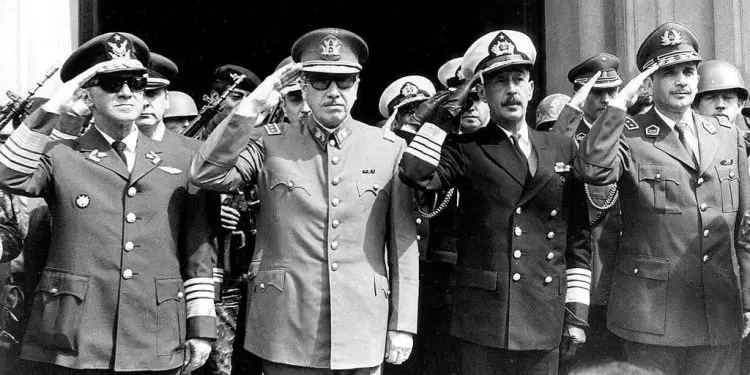
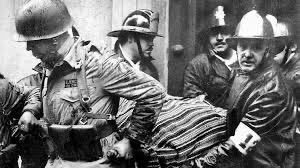
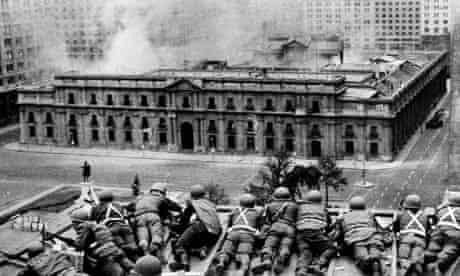
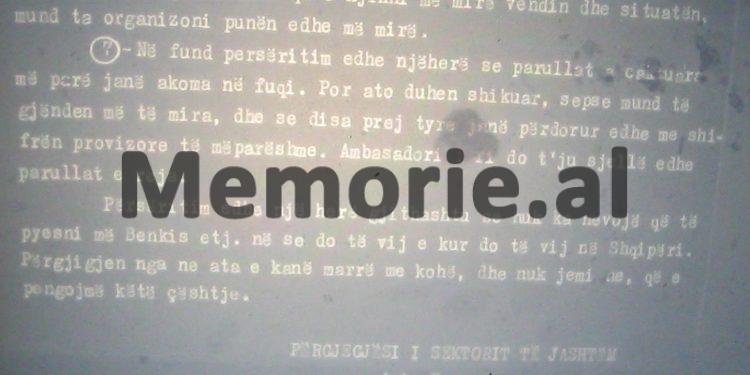
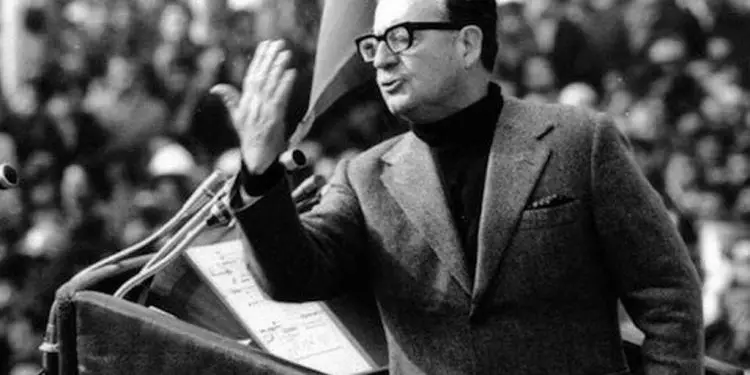
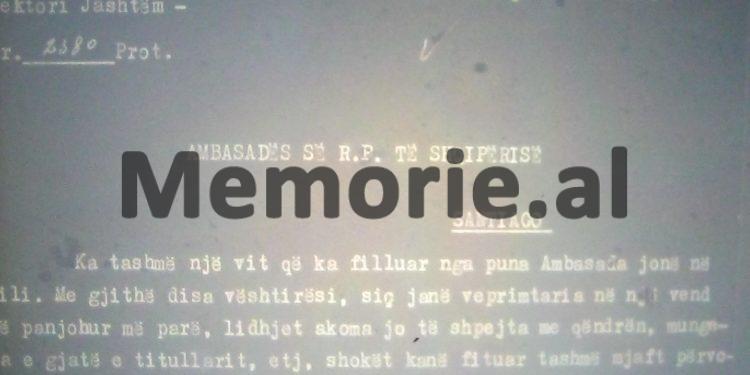
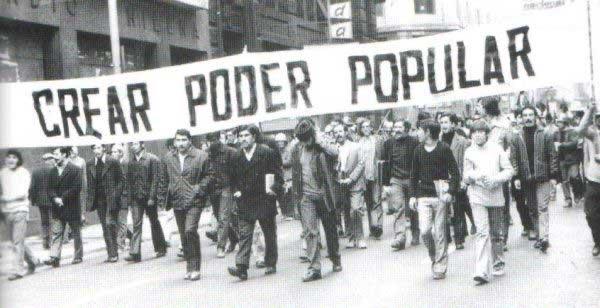
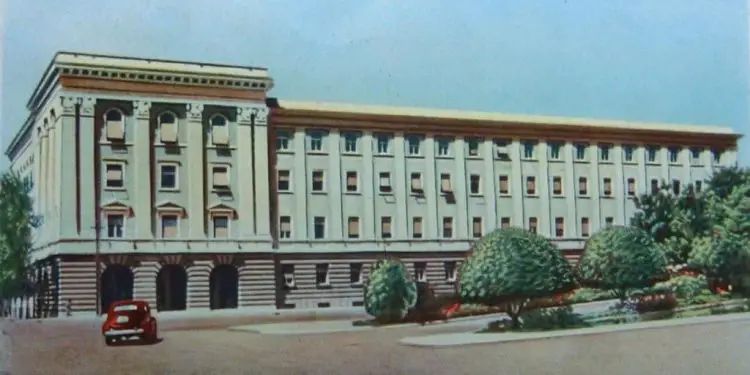
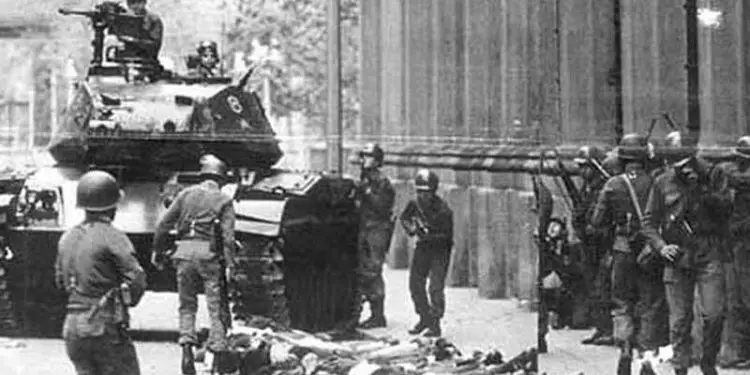
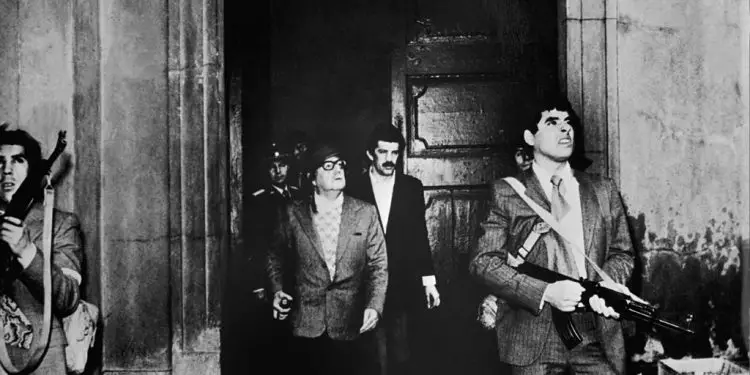
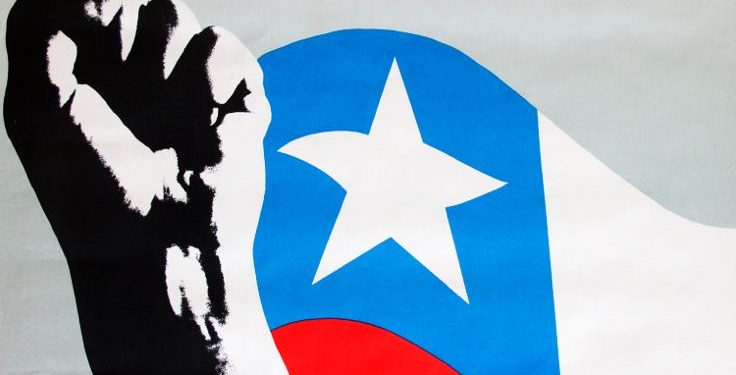
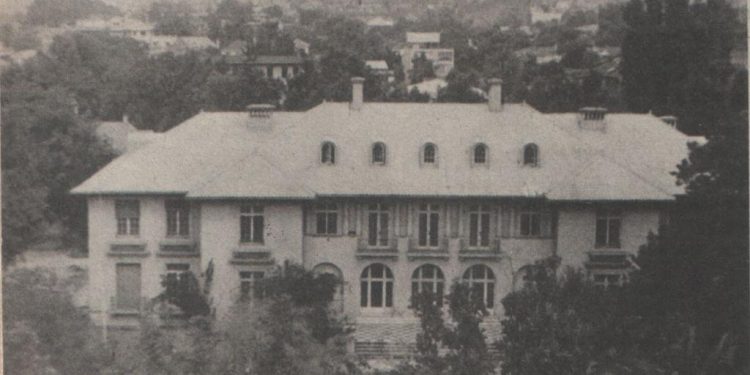
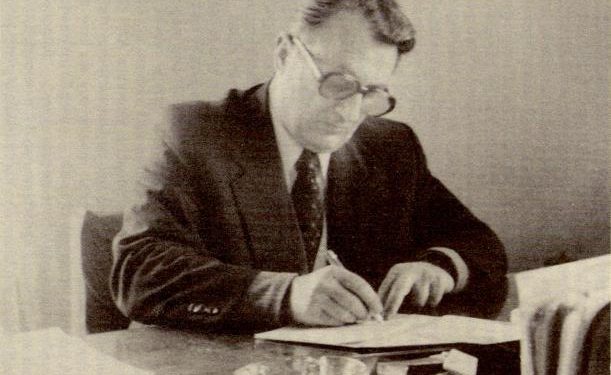


![“The ensemble, led by saxophonist M. Murthi, violinist M. Tare, [with] S. Reka on accordion and piano, [and] saxophonist S. Selmani, were…”/ The unknown history of the “Dajti” orchestra during the communist regime.](https://memorie.al/wp-content/uploads/2026/02/admin-ajax-3-350x250.jpg)
![“In an attempt to rescue one another, 10 workers were poisoned, but besides the brigadier, [another] 6 also died…”/ The secret document of June 11, 1979, is revealed, regarding the deaths of 6 employees at the Metallurgy Plant.](https://memorie.al/wp-content/uploads/2026/02/maxresdefault-350x250.jpg)


